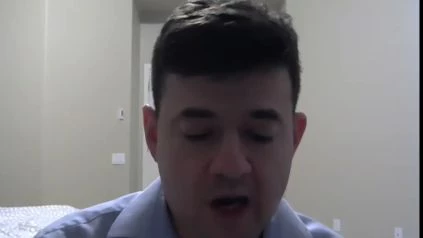Daniel Persky, MD @UAZCance #ASCO20 Positron Emission Tomography–Directed Therapy for Patients With Limited-Stage Diffuse Large B-Cell Lymphoma: Results of Intergroup National Clinical Trials Network Study S1001
Intent
In 25 percent to 30 percent of patients, diffuse large B-cell lymphoma (DLBCL) is presented as a limited-stage disease, with better overall survival ( OS) than that for advanced-stage disease, but with continuous relapse regardless of treatment strategy. Rituximab, cyclophosphamide, doxorubicin, vincristine, and prednisone (R-CHOP) and radiation therapy are the recommended medications. We designed a National Clinical Trials Network (NCTN) study to enhance findings and decrease toxicity on the basis of promising outcomes of positron emission tomography (PET)-directed treatment approaches.
METHODS Â
Patients with nonbulky (< 10 cm) stage I / II untreated DLBCL underwent 3 cycles of regular R-CHOP therapy and had an interim PET / computed tomography scan (iPET) centrally examined. Those with negative iPET followed 1 additional R-CHOP period, while those with positive iPET received field radiation therapy followed by radioimmunotherapy with ibritumomab tiuxetan.
RESULTSÂ
Of the 158 patients enrolled, 132 were eligible and 128 were treated with iPET, which was positive in 14 patients (11 per cent). Just 6 patients progressed and 3 died as a result of lymphoma, with a median follow-up of 4.92 years (range, 1.1-7.7 years). Eleven patients died at a median age of 80 from causes of nonlymphoma. The 5-year progression-free survival estimate was 87 percent (95 percent CI, 79 percent to 92 percent) and the OS estimate was 89 percent (95 percent CI, 82 percent to 94 percent), with comparable findings for both iPET-positive and iPET-negative patients.
FINDINGSÂ
S1001 is, to our knowledge, the largest prospective study of limited-stage DLBCL in the rituximab period in the United States, with the best NCTN findings in this subset of diseases. 89 percent of the patients with a negative iPET received R-CHOP x 4 with PET-directed treatment, and only 11 percent had a positive iPET and needed radiation, with outstanding results in both categories. For the utter majority of patients, the trial identifies R-CHOP x 4 alone as the current normal approach to limited-stage disease.

